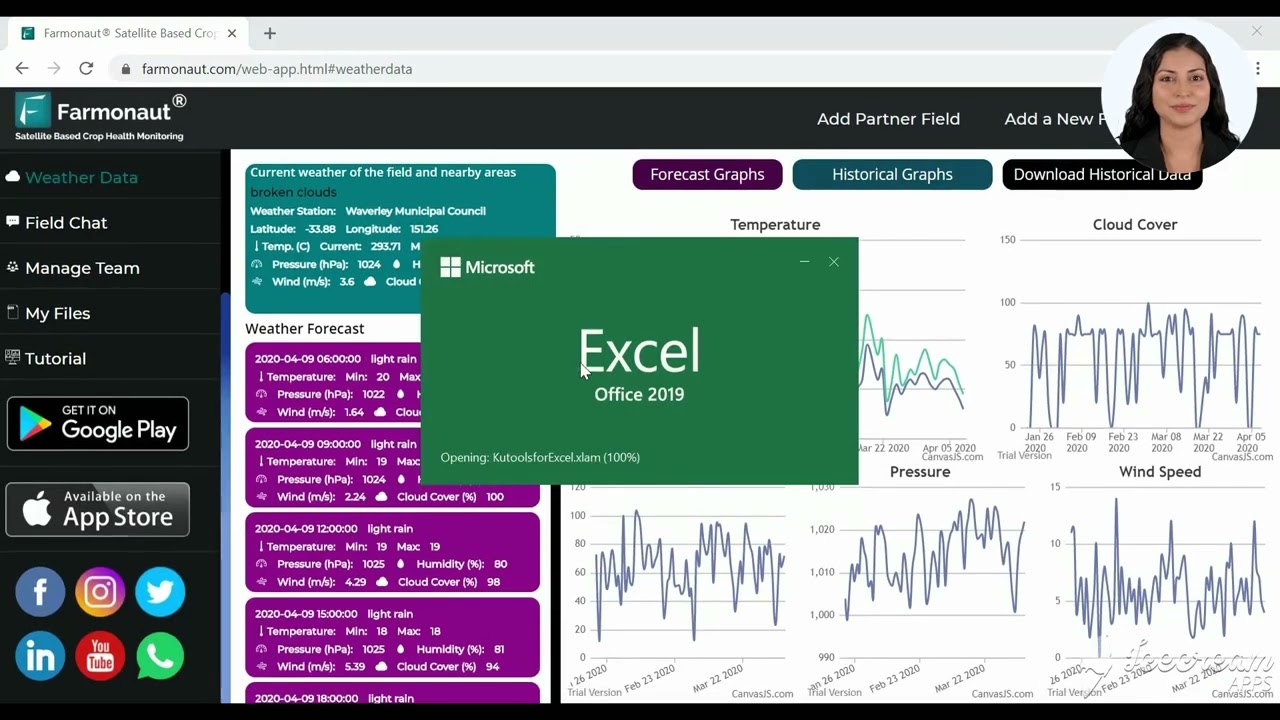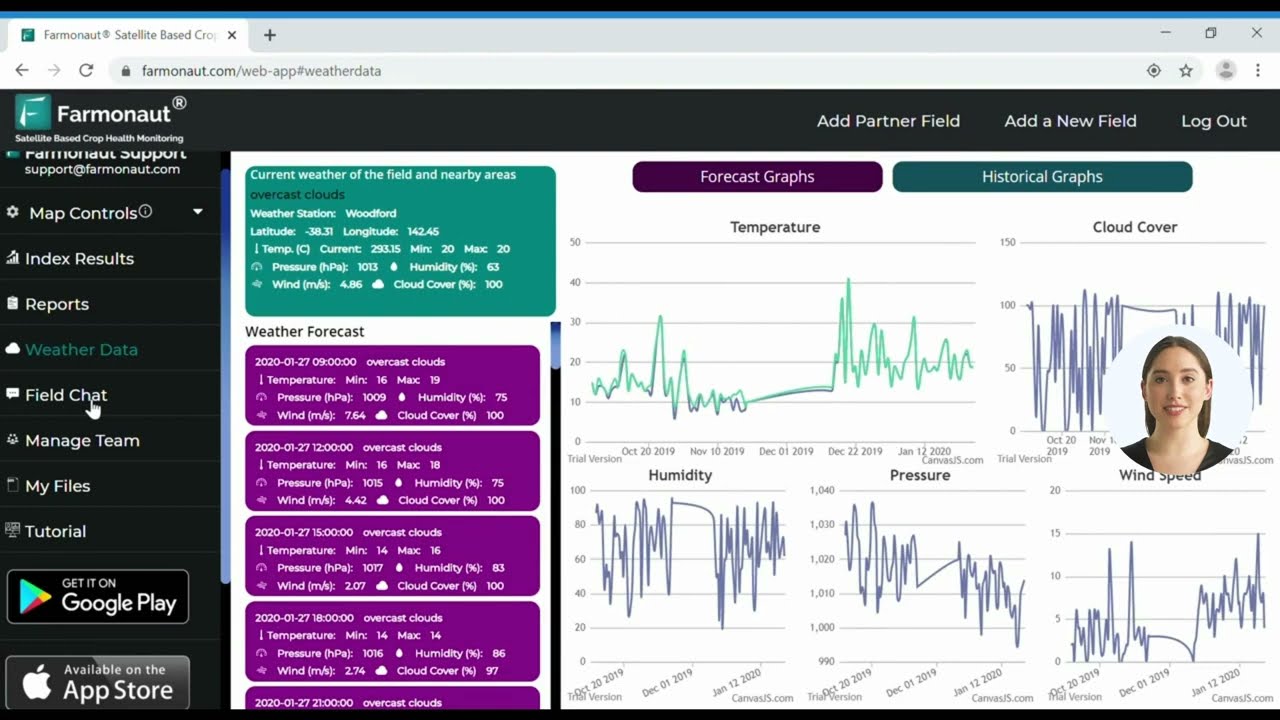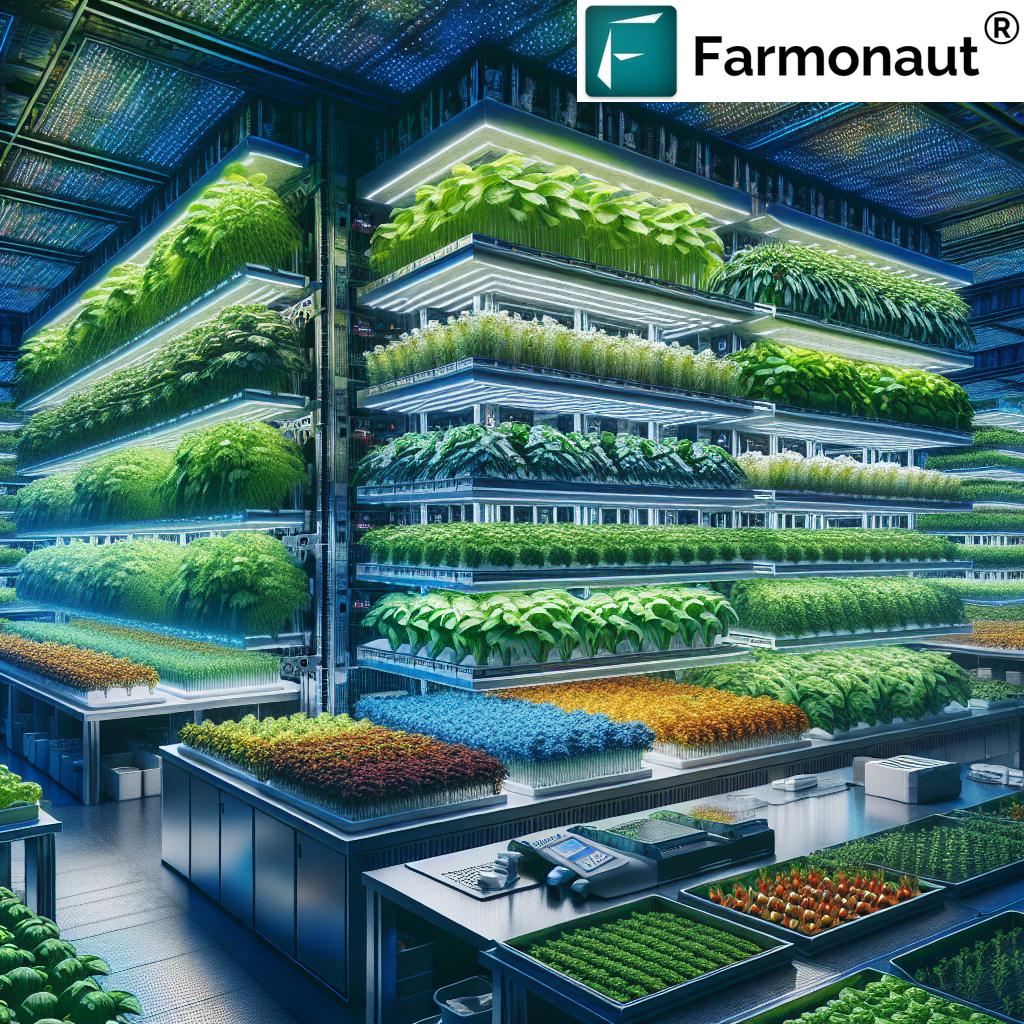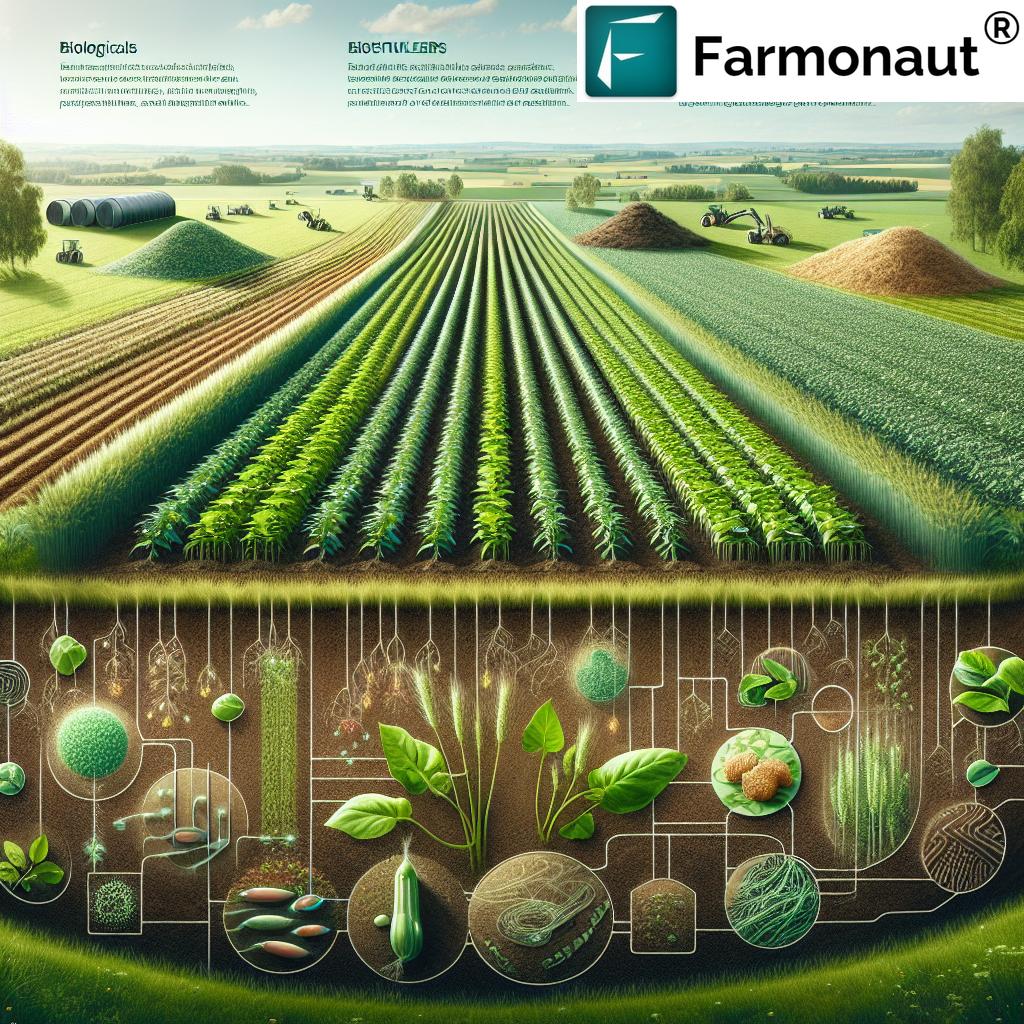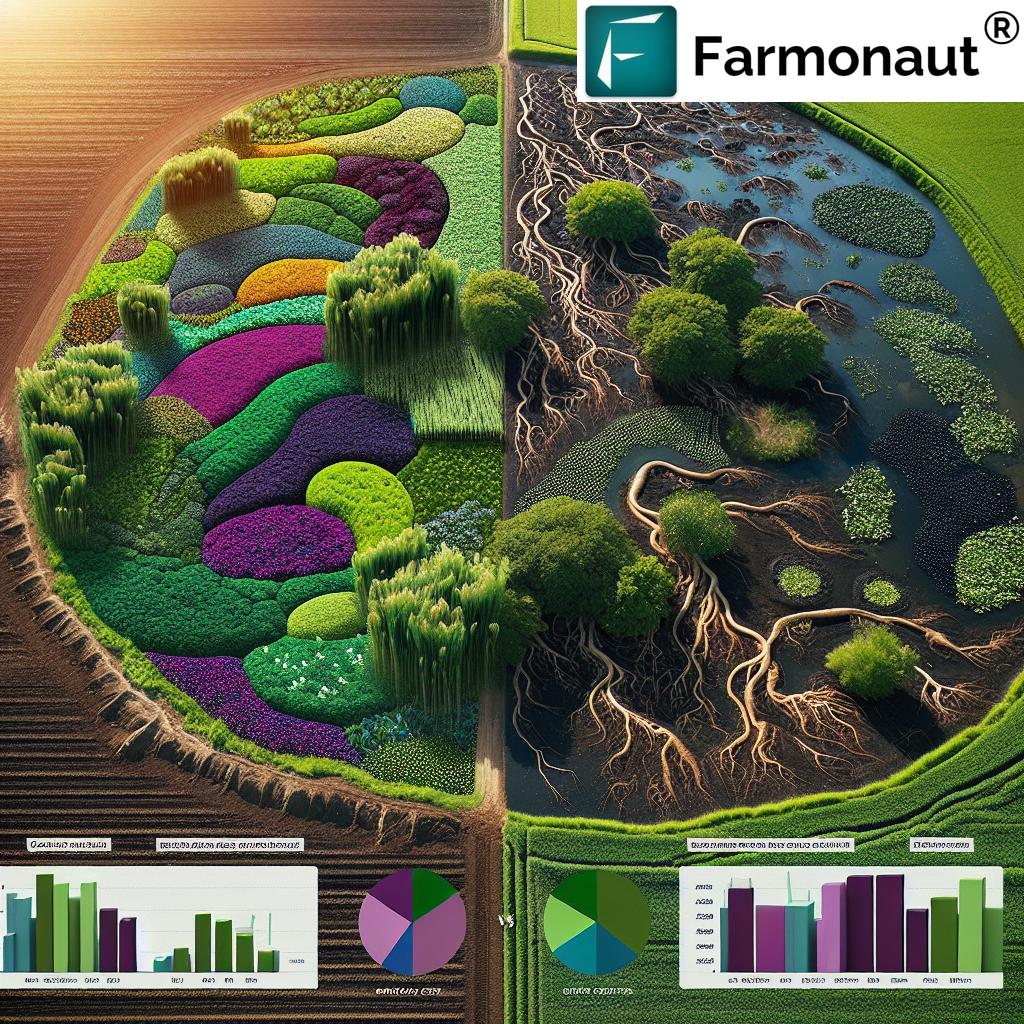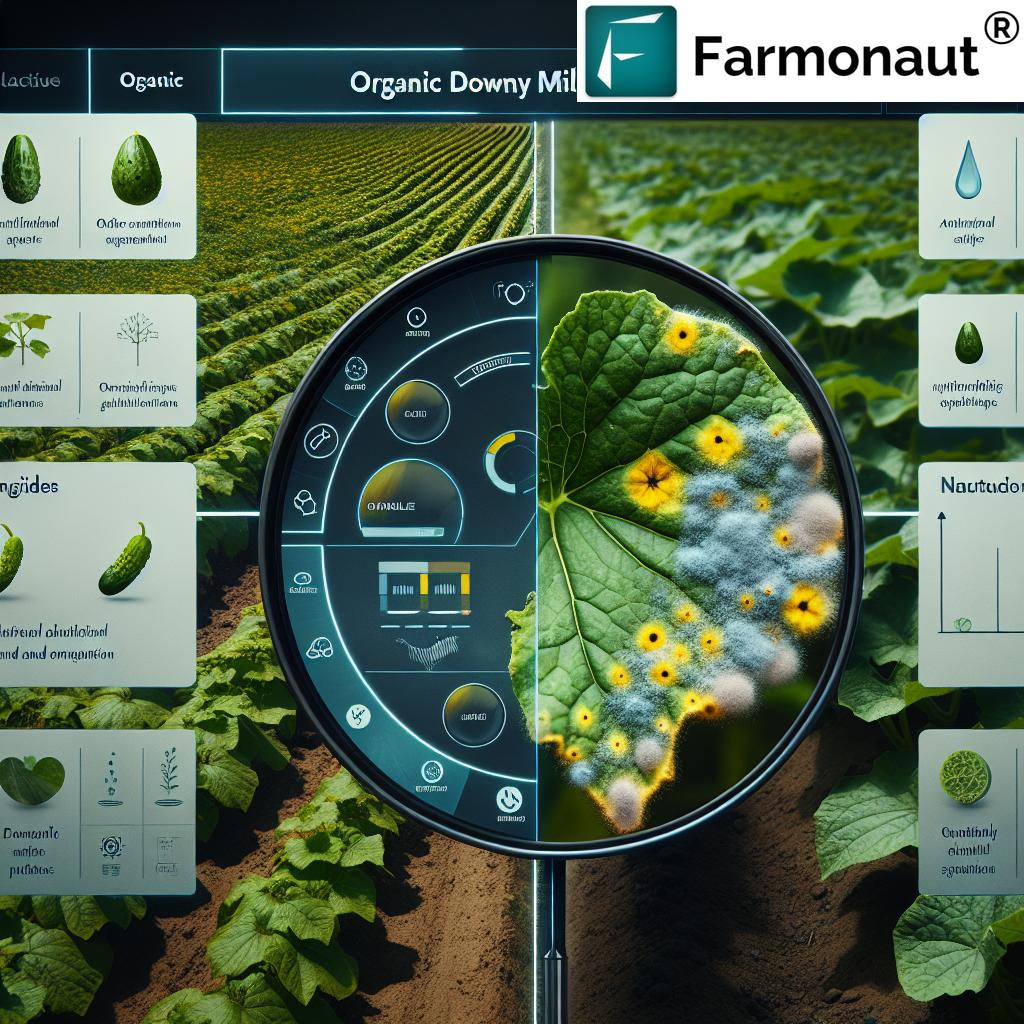Revolutionizing Agriculture: How Farmonaut’s IoT-Enabled Heat Pump Technology Boosts Efficiency in Greenhouse Climate Control
“Heat pump technology can reduce greenhouse energy consumption by up to 70%, significantly lowering operational costs for farmers.”
In the ever-evolving landscape of agriculture, we are witnessing a remarkable transformation driven by innovative technologies. At the forefront of this revolution is the integration of IoT-enabled heat pump technology, particularly in greenhouse climate control. As we delve into this topic, we’ll explore how companies like Farmonaut are pioneering solutions that not only enhance efficiency but also pave the way for more sustainable farming practices.
The Rise of Heat Pump Technology in Agriculture
Heat pump technology has emerged as a game-changer in the agricultural sector, offering energy-efficient heating solutions that are reshaping how we approach climate control in greenhouses and various agricultural processes. The global heat pump market, currently valued at USD 64.02 billion, is projected to reach an impressive USD 147.29 billion by 2032, growing at a CAGR of 9.7% from 2024 to 2032.
This substantial growth is driven by the increasing demand for sustainable and energy-efficient heating and cooling solutions across various industries, with agriculture being a key beneficiary. Heat pumps are particularly valued for their ability to transfer heat rather than generate it, making them significantly more efficient than traditional heating systems.
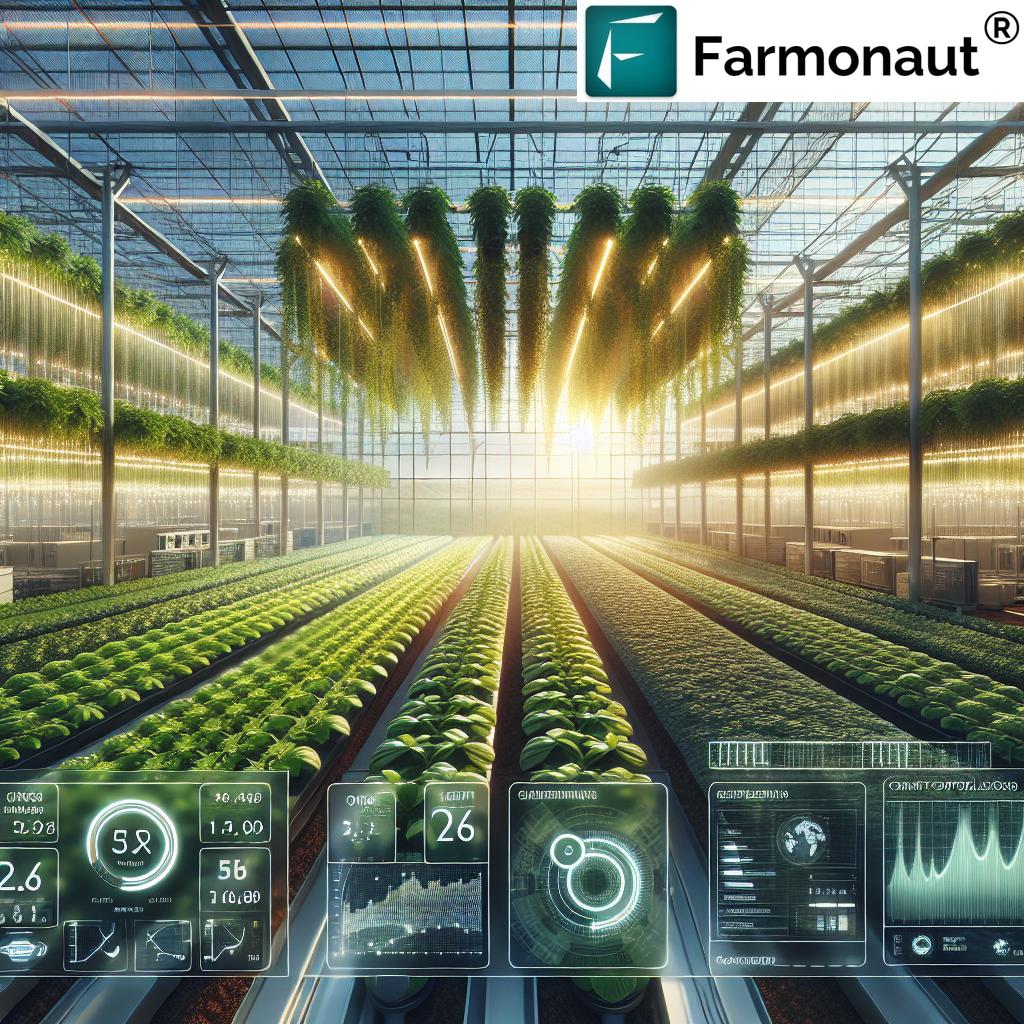
Understanding Heat Pump Technology
Before we delve deeper into its applications in agriculture, let’s understand the basics of heat pump technology:
- Operating Principle: Heat pumps work by transferring heat from one location to another, rather than generating heat directly.
- Energy Sources: They can utilize various sources such as air, water, and geothermal energy.
- Versatility: Heat pumps can provide both heating in winter and cooling in summer, adapting to seasonal changes.
- Efficiency: When combined with proper insulation, heat pumps can significantly reduce energy consumption.
Applications of Heat Pump Technology in Agriculture
The agricultural sector is experiencing a paradigm shift with the integration of heat pump technology. Here’s how this technology is being applied:
- Greenhouse Climate Control: Heat pumps provide precise temperature regulation, crucial for optimal plant growth.
- Soil Warming: Geothermal heat pumps can be used to maintain ideal soil temperatures, extending growing seasons.
- Crop Drying: Heat pump dehumidifiers offer an energy-efficient method for drying crops post-harvest.
- Food Processing: In the food industry, heat pumps are used for various processes including pasteurization and sterilization.
These applications not only enhance productivity but also contribute significantly to reducing the carbon footprint of agricultural operations.
IoT Integration: The Game Changer
The true revolution in heat pump technology comes with its integration with the Internet of Things (IoT). This synergy creates smart, connected systems that offer unprecedented control and efficiency. Here’s how IoT is enhancing heat pump technology in agriculture:
- Real-Time Monitoring: IoT sensors provide constant data on temperature, humidity, and energy consumption.
- Remote Control: Farmers can adjust settings from anywhere, ensuring optimal conditions even when off-site.
- Predictive Maintenance: AI algorithms can predict when maintenance is needed, reducing downtime and extending equipment life.
- Energy Optimization: Smart systems can automatically adjust operations based on energy prices and weather forecasts.
Farmonaut, a leader in agricultural technology, is at the forefront of integrating these IoT capabilities with heat pump systems, offering farmers unparalleled control over their greenhouse environments.
Farmonaut’s Innovative Approach
Farmonaut’s integration of IoT-enabled heat pump technology with its existing suite of agricultural solutions is revolutionizing greenhouse management. By leveraging their expertise in satellite-based crop monitoring and AI-driven advisory systems, Farmonaut is creating a holistic approach to farm management that includes:
- Precision Climate Control: Utilizing real-time data from satellites and on-ground sensors to optimize greenhouse conditions.
- Energy Efficiency: Smart algorithms that balance heat pump operations with energy consumption, reducing costs and environmental impact.
- Crop-Specific Optimization: Tailoring climate control strategies based on specific crop requirements and growth stages.
To experience these innovative solutions firsthand, you can access Farmonaut’s services through their various platforms:
Benefits of IoT-Enabled Heat Pump Technology in Agriculture
The integration of IoT with heat pump technology in agriculture offers numerous benefits:
- Enhanced Energy Efficiency: Smart control systems optimize energy use, reducing costs and environmental impact.
- Improved Crop Yields: Precise climate control leads to better growing conditions and higher yields.
- Reduced Labor Costs: Automation and remote monitoring decrease the need for constant on-site presence.
- Data-Driven Decision Making: Continuous data collection allows for informed, strategic farming decisions.
- Extended Growing Seasons: Climate control enables year-round cultivation in controlled environments.
“The global heat pump market is projected to reach $84 billion by 2026, with agriculture as a key growth sector.”
Overcoming Challenges in Implementation
While the benefits are clear, implementing IoT-enabled heat pump technology in agriculture does come with challenges:
- Initial Investment: The upfront cost of installation can be significant, averaging around $16,025 as of 2023.
- Technical Expertise: Farmers may need training to effectively use and maintain these advanced systems.
- Connectivity Issues: Reliable internet connectivity in rural areas can be a hurdle for IoT implementation.
- Data Security: Protecting sensitive farm data from cyber threats is crucial.
Farmonaut addresses these challenges by offering comprehensive support and training, ensuring that farmers can fully leverage the technology’s potential.
Environmental Impact and Sustainability
The adoption of IoT-enabled heat pump technology in agriculture aligns perfectly with global sustainability goals. Here’s how:
- Reduced Carbon Emissions: By improving energy efficiency, these systems significantly lower greenhouse gas emissions.
- Water Conservation: Precise climate control allows for optimized water use in greenhouses.
- Sustainable Resource Management: IoT integration enables better management of resources, reducing waste.
- Promotion of Renewable Energy: Heat pumps can be powered by renewable energy sources, further reducing environmental impact.
Farmonaut’s commitment to sustainability is evident in their carbon footprinting feature, which allows agribusinesses to monitor and reduce their environmental impact in real-time.
The Future of Heat Pump Technology in Agriculture
As we look to the future, several trends are shaping the evolution of heat pump technology in agriculture:
- Increased Integration with Renewable Energy: Solar and wind power integration will make heat pump systems even more sustainable.
- Advanced AI and Machine Learning: These technologies will further optimize system performance and predictive capabilities.
- Miniaturization and Cost Reduction: Ongoing research aims to make heat pump systems more compact and affordable.
- Expansion into New Agricultural Applications: We can expect to see heat pump technology applied in new areas of farming and food production.
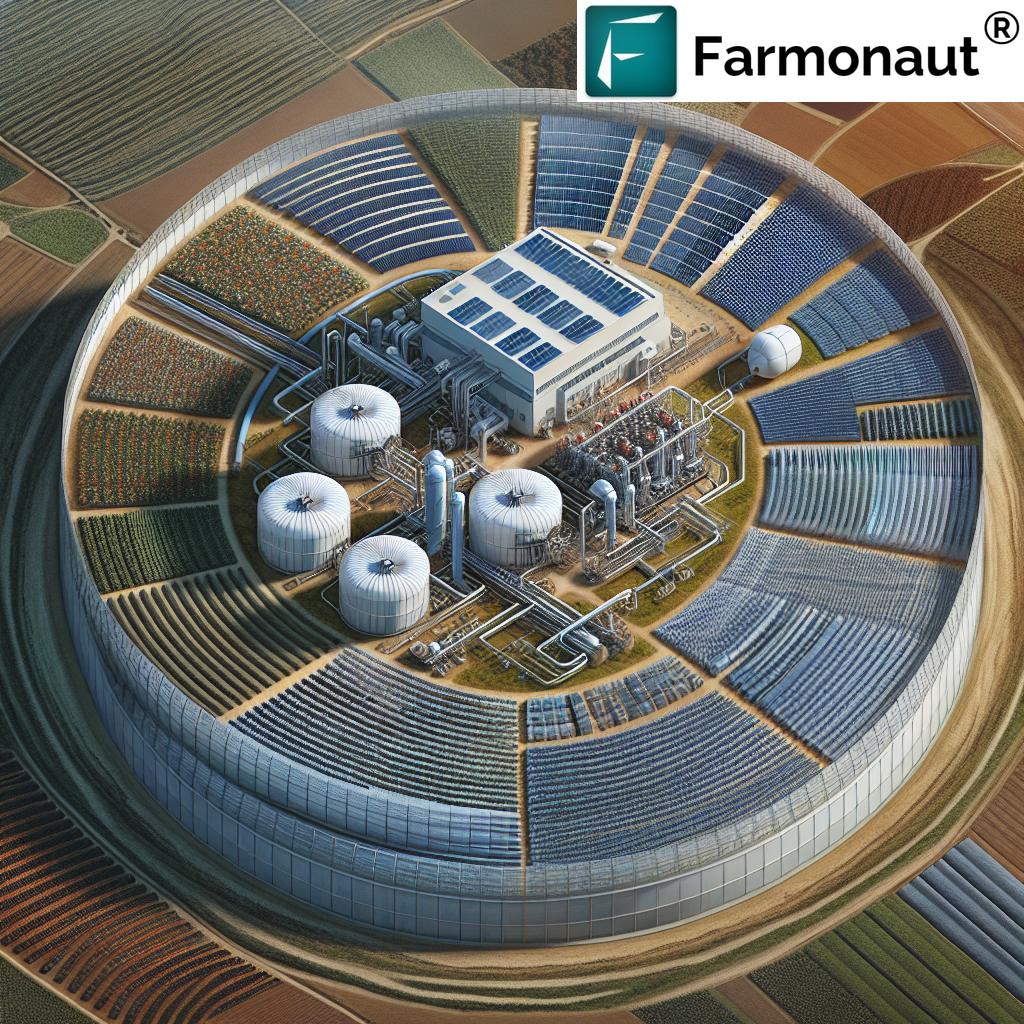
Comparative Analysis: Traditional vs. Heat Pump Solutions in Agriculture
| Application | Traditional Method | Heat Pump Solution | Benefits |
|---|---|---|---|
| Greenhouse Heating | Fossil fuel boilers | Air-source or ground-source heat pumps |
– Energy efficiency up to 300% – Reduced carbon emissions – Lower operational costs |
| Crop Drying | Direct-fired heaters | Heat pump dehumidifiers |
– Better quality preservation – Energy savings of 50-60% – Precise humidity control |
| Soil Warming | Electric soil cables | Geothermal heat pumps |
– Extended growing seasons – Uniform soil temperature – Reduced energy consumption |
| Food Processing | Steam boilers | Industrial heat pumps |
– Higher coefficient of performance – Reduced water usage – Lower maintenance costs |
Case Study: Implementing IoT-Enabled Heat Pumps in Greenhouse Farming
To illustrate the real-world impact of this technology, let’s consider a hypothetical case study of a large-scale greenhouse operation:
Background: A 10-hectare tomato greenhouse in the Netherlands struggled with high energy costs and inconsistent crop yields due to fluctuating temperatures.
Implementation: The greenhouse installed an IoT-enabled heat pump system integrated with Farmonaut’s satellite-based crop monitoring technology.
Results:
- Energy consumption reduced by 65% compared to the previous gas-fired heating system.
- Crop yield increased by 20% due to more stable and optimized growing conditions.
- Carbon emissions decreased by 70%, aligning with the company’s sustainability goals.
- Return on investment achieved within 3 years, despite the initial high installation cost.
This case study demonstrates the potential of IoT-enabled heat pump technology when combined with advanced agricultural monitoring systems like those offered by Farmonaut.
The Role of Government and Policy in Adoption
Government policies and incentives play a crucial role in the widespread adoption of heat pump technology in agriculture. Several countries are implementing measures to encourage this transition:
- Subsidies and Tax Incentives: Many governments offer financial incentives for installing energy-efficient heating systems, including heat pumps.
- Research Funding: Increased allocation of funds for research and development in agricultural heat pump technology.
- Emission Reduction Targets: Stricter environmental regulations are pushing the agricultural sector towards cleaner technologies.
- Education and Training Programs: Government-sponsored programs to train farmers in new technologies.
These policies are crucial in overcoming the initial cost barriers and accelerating the adoption of IoT-enabled heat pump systems in agriculture.
Integrating Heat Pump Technology with Other Agricultural Innovations
The true power of IoT-enabled heat pump technology in agriculture is realized when it’s integrated with other cutting-edge farming innovations. Farmonaut’s comprehensive approach exemplifies this integration:
- Satellite-Based Crop Monitoring: Combining heat pump control with satellite data for optimal crop management.
- AI-Driven Advisory Systems: Using AI to analyze heat pump performance alongside crop health data for personalized recommendations.
- Blockchain-Based Traceability: Incorporating energy usage data into the supply chain for enhanced transparency.
- Precision Agriculture: Integrating heat pump systems with precision farming techniques for resource optimization.
For developers interested in integrating these technologies, Farmonaut offers robust API solutions:
Economic Impact on Farming Communities
The adoption of IoT-enabled heat pump technology has far-reaching economic implications for farming communities:
- Cost Savings: Reduced energy costs lead to improved profitability for farmers.
- Job Creation: The need for installation, maintenance, and operation of these systems creates new job opportunities.
- Increased Competitiveness: Farms using this technology can produce higher quality crops more consistently, giving them a market advantage.
- Extended Growing Seasons: Year-round production capabilities can stabilize income for farmers.
- Rural Development: The introduction of high-tech solutions can attract investment and talent to rural areas.
These economic benefits contribute to the overall sustainability and resilience of agricultural communities.
Challenges and Future Research Directions
While IoT-enabled heat pump technology shows great promise, there are still challenges to address and areas for future research:
- Scalability: Developing solutions that are effective for both small-scale and large industrial farms.
- Energy Storage: Improving energy storage technologies to enhance the efficiency of heat pump systems, especially when integrated with renewable energy sources.
- Artificial Intelligence: Advancing AI algorithms to better predict and optimize heat pump performance based on various environmental factors.
- Resilience: Enhancing system resilience against power outages and extreme weather events.
- Biodiversity Impact: Studying the long-term effects of controlled environments on crop diversity and resilience.
Ongoing research in these areas will be crucial for the continued evolution and improvement of heat pump technology in agriculture.
Conclusion: A Sustainable Future for Agriculture
The integration of IoT-enabled heat pump technology in agriculture, particularly in greenhouse climate control, represents a significant leap towards more sustainable and efficient farming practices. As we’ve explored, this technology offers numerous benefits, from energy efficiency and cost savings to improved crop yields and reduced environmental impact.
Companies like Farmonaut are at the forefront of this agricultural revolution, providing innovative solutions that combine heat pump technology with advanced satellite monitoring, AI-driven insights, and comprehensive farm management tools. By leveraging these technologies, farmers can not only improve their productivity and profitability but also contribute to global efforts in reducing carbon emissions and promoting sustainable agriculture.
As we look to the future, the continued development and adoption of IoT-enabled heat pump technology in agriculture will play a crucial role in addressing the challenges of food security, climate change, and resource conservation. With ongoing research, supportive policies, and innovative companies leading the way, we are poised to enter a new era of smart, sustainable, and efficient farming practices.
The revolution in agriculture is here, and it’s powered by the synergy of heat pump technology and IoT. As we embrace these advancements, we move closer to a future where agriculture is not just productive, but also in harmony with our planet’s ecological needs.
FAQs
- What is IoT-enabled heat pump technology?
IoT-enabled heat pump technology combines efficient heat transfer systems with Internet of Things connectivity, allowing for remote monitoring, control, and optimization of heating and cooling in agricultural settings. - How does this technology improve greenhouse efficiency?
It provides precise climate control, reduces energy consumption, enables remote management, and integrates with other smart farming systems for optimal growing conditions. - What are the main benefits for farmers?
Key benefits include reduced energy costs, improved crop yields, extended growing seasons, and better resource management. - Is this technology suitable for small-scale farms?
While initial costs can be high, solutions are being developed for various scales of operation, making it increasingly accessible to smaller farms. - How does Farmonaut contribute to this technology?
Farmonaut integrates IoT-enabled heat pump systems with its satellite-based crop monitoring and AI advisory services, offering a comprehensive solution for smart greenhouse management.







